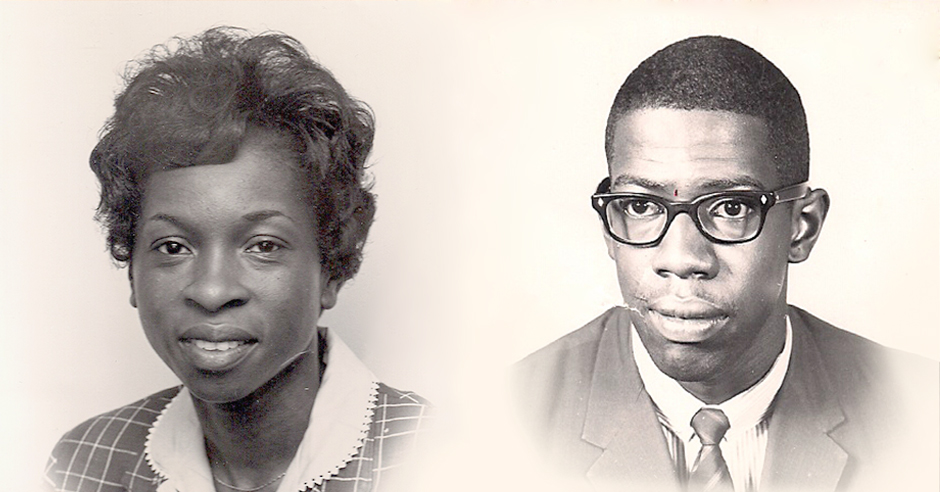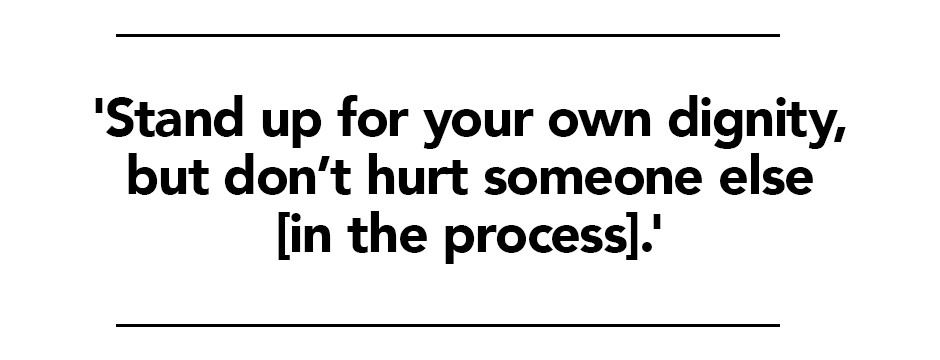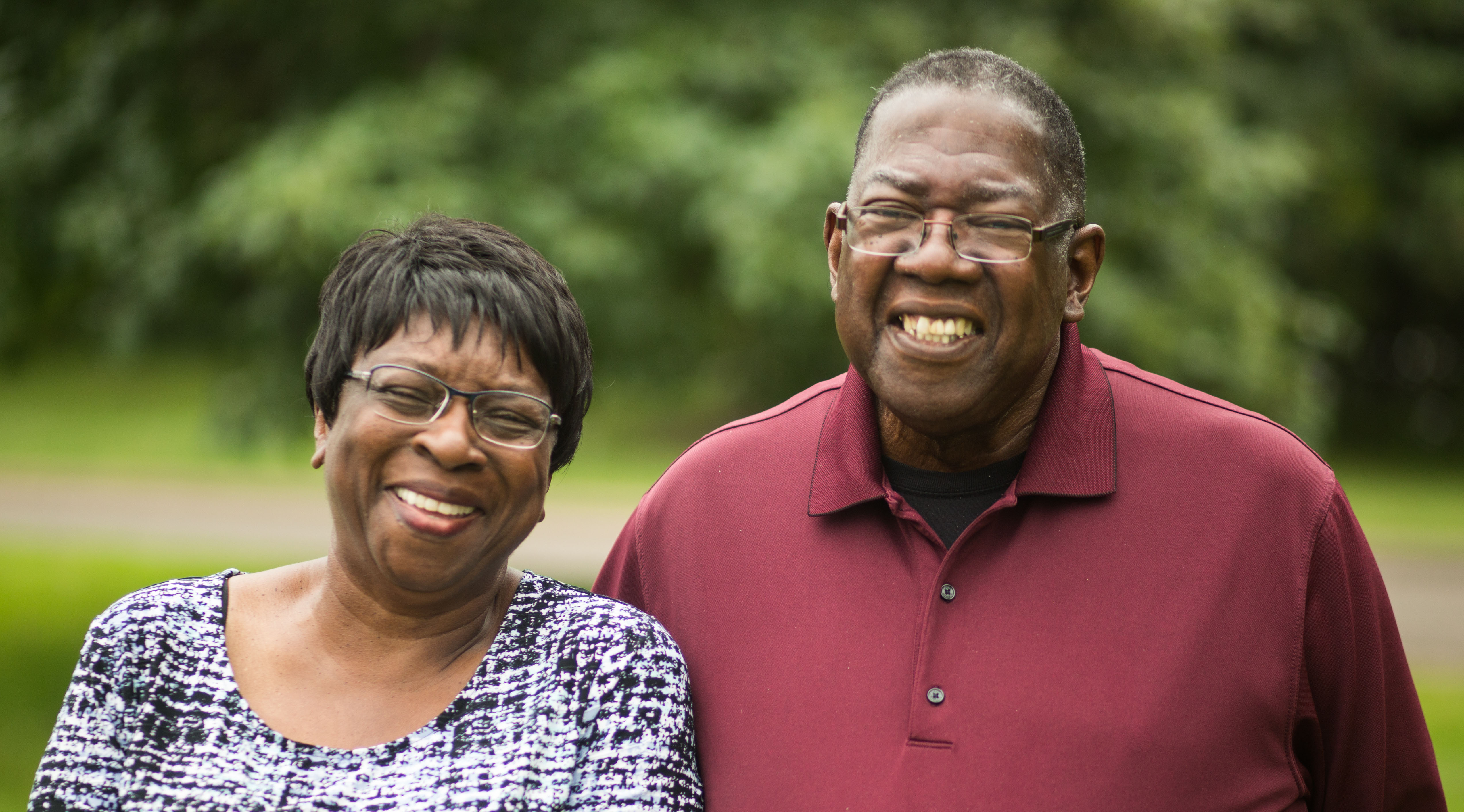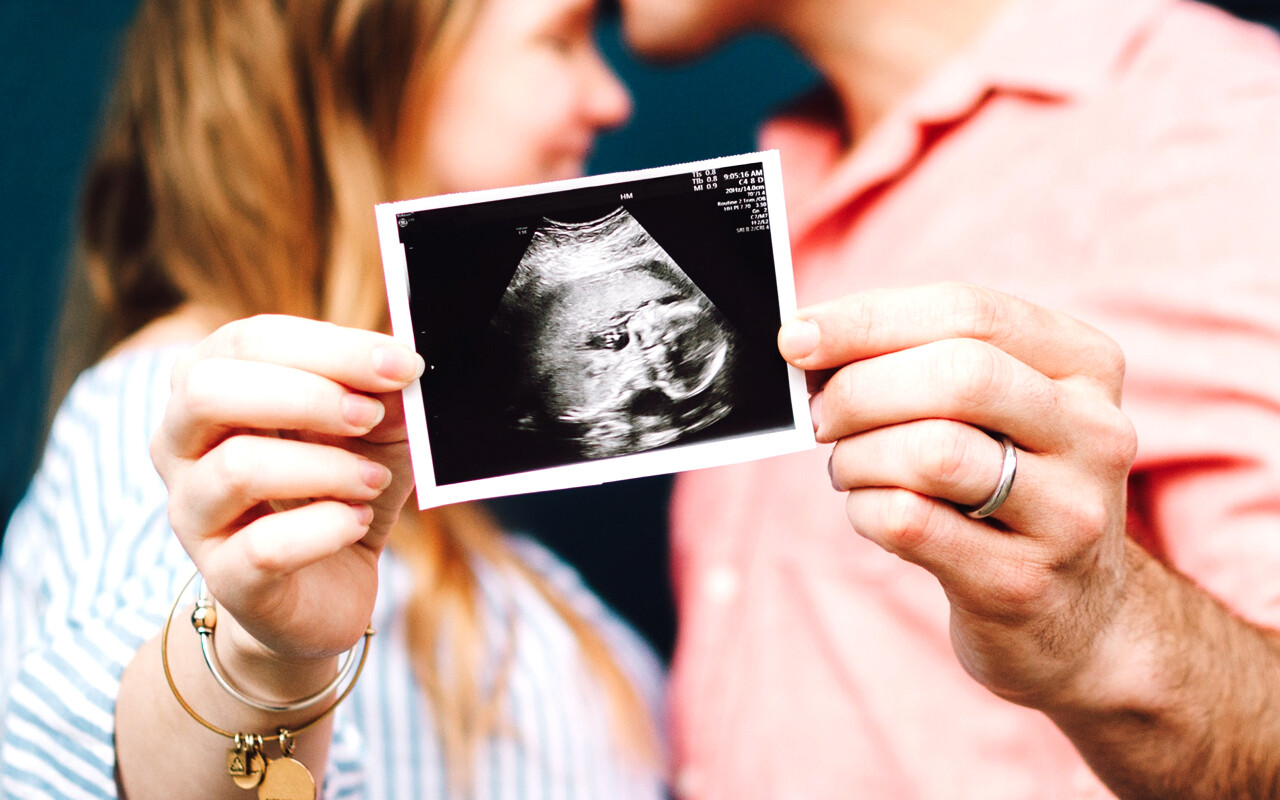
The decisions we make, big and small, begin to define who we are, and affect other decisions that we make down the road. Our journeys are often not a linear path, but one with many bends and winding roads.
Cal and Barb Winbush can relate. They grew up in central Alabama in the 1950s during the heat of segregation and the Civil Rights era—an experience that truly shaped their trust in God and their outlook on humanity. Though they are enjoying their retirement and spent much of their adult lives in Minnesota, it was not a simple journey to settle here. A series of decisions, good and bad, in their estimation, brought them away from family and the familiar to the place where they believe God ultimately wanted them to land.
How it All Began
Cal and Barb met as juniors in college in Montgomery, Ala., where they were both training to be teachers. They were seniors the year that Martin Luther King, Jr. marched from Selma to Montgomery, and while he was still in Selma, they joined a group of a couple hundred students from their college to petition the governor because of the attacks on the demonstrators in Selma.
As the students marched, unprotected, from their campus to the capitol, they rounded a corner where they faced leering crowds hurling insults at them and a line-up of police with guns out and dogs at the ready. But they kept marching. Though she was afraid, Barb said she felt compelled to participate—that they had to stand up and be heard. When Rev. King reached Montgomery, Barb and Cal joined in and marched into the city along with thousands of other people from different racial and faith backgrounds, a defining moment in their lives.
"Growing up and living in the South in the 50s was, for me personally, frightening," says Barb. "It was a very violent place. We were there during the time of the Civil Rights Movement, church bombings, you absolutely had no rights. That's hard to convey to someone in America today that you couldn't vote, there were places you couldn't go, you had no rights. You couldn't stand up for yourself."
However, Cal and Barb firmly believe that growing up in the segregated South helped formulate their outlook on humanity—that it is love, not hate that wins hearts; that the dignity of human beings cannot be ignored and is worth fighting for.
 "I want to accept people for who they are," says Barb. "I want to get to know them, just like I want them to get to know me, and I don't want to continue this animosity." That was the philosophy she was raised on, one that continues to define her actions today.
"I want to accept people for who they are," says Barb. "I want to get to know them, just like I want them to get to know me, and I don't want to continue this animosity." That was the philosophy she was raised on, one that continues to define her actions today.
"My grandparents had always taught us that you don't hate people in return," she says. "Martin Luther King actually taught love—love your enemies. He really taught the Gospel message and that was the underlying basis for the whole struggle. It was not the hatred that I see today, which I do not like. It was love, and that's how you win—stand up for your own dignity, but don't hurt someone else [in the process]."
Barb says that her grandfather, who taught her so much about faith and love, is her hero. The son of a slave, she doesn't know how he came to know the Lord, but she firmly believes that one decision of his has had a ripple effect. "He was a strong, devoted Christian. He sowed that seed in our family. And it's amazing, the fruit of that over a hundred years or more. That was his great decision. And one great decision affects generations."
Away We Go to Minnesota
When Cal and Barb were in their early 20s, both teaching at a school in central Georgia, they started questioning how long they could realistically stay there, based on the salaries they received.
"One day we were having lunch at the Dairy Queen—very fancy—and we looked at the teacher's pay schedule going out 20 years," says Barb. "And were like 'We won't make enough money to take care of a family in 20 years if we stay here!'"
So they started looking for something new. This was shortly after the Civil Rights Bill passed, so large corporations were beginning to try to diversify. Cal and Barb went to a job fair, and Barb ended up interviewing with IBM. They brought her up to Rochester, Minn. for a final interview, and she got the job. So, they packed up and moved across the country, to a place that was entirely different from their experience thus far.

"I think God just helped us do that," says Barb. "I think he gave us the courage to do it, and the confidence to do it."
As they settled in, they found people to be welcoming and kind to them, a stark contrast from the violence and animosity they had experienced growing up in Alabama in the 50s.
"It was not a hostile environment. It was more of a curiosity. We were a curiosity," says Cal. In a primarily white community, they certainly were in the minority, but they found that, for the first time in their lives, they weren't being defined by the color of their skin, but simply by who they were.
"I always wanted to live somewhere where I could be myself," says Barb. "And I wanted to have the chance to raise my kids that way. So that was a big, underlying motivation for this move."
Back Home
They spent four years in Minnesota, Barb at her job with IBM and Cal working for the state of Minnesota, and also attending graduate school at Winona State.
But after having their first child, they wanted to be near family again. So they began praying, asking God to open doors, to help them find jobs back in Alabama.
"I remember approaching it with God like, I just started praying that he would find us a job, that we would get settled," says Barb.
They eventually found jobs, but a couple months after returning to Alabama the Winbush's knew they had made a mistake. Though it was wonderful to be near family again, schools were overcrowded and still groaning from the pains of integration, and the healthcare system was in shambles. This wasn't what they had wanted for their 6-year old son.
"It wasn't the coming home that we thought it could be," says Barb.
After seeing if they could return to their old jobs in Minnesota, to no avail, they decided that they simply had to make the best of a bad situation, and they spent six years learning and growing through that.

The biggest lesson they learned during those years? "Trust means something different than just asking for what I want." Barb said that, in praying that God would open doors and bring them back to Alabama, she says she forgot to ask a key question: "God, what do you want us to do?"
"I have never done that again," she says. "When there was time and opportunity to come back [to Minnesota], I asked the right question: 'If this is your will, bring us back.'"
And He did.
"I just learned how to pray differently," she added.
And, in returning to Minnesota, they were able to give their two sons a different growing up experience than they had. "Their whole sense of things is that everybody's the same. That's what they grew up with," says Cal.
"We raised them not to see differences so much as to be who they are," says Barb.
He Was There All Along
After moving back to Minnesota the second time, they stayed for good. Cal worked at Winona State for 25 years, and spend many of those years as the Vice President of Student Affairs.
But their time in Minnesota has not been without its own set of ups and downs. They've celebrated marriages and the births of their grandchildren, but also walked through the valleys of illness and uncertainty. Cal faced cancer and in 2006 he went into kidney failure and had to get a transplant but, miraculously, Barb was a perfect match, and was able to donate one of her kidneys to him.
Shortly after that, they decided to move up to the Twin Cities from Winona to be closer to their two sons. They settled in Lino Lakes and, upon the recommendation of their pastor in Winona, started attending Eagle Brook.

Cal and Barb both agree that moving to Minnesota (and, staying after their second move) was one of their best decisions—their very best being their decisions to follow Christ and their decision to love one another. They credit God with giving them the wisdom and direction to navigate life's many turns and decisions, and the grace to make a new place home.
"You look back and go, 'He was there all along.' Even in little ways that we didn't recognize at the time," says Barb. "[God] created in us a spirit of openness and forgiveness and acceptance that would let us function in a different place." And that, to her, makes all the difference.



